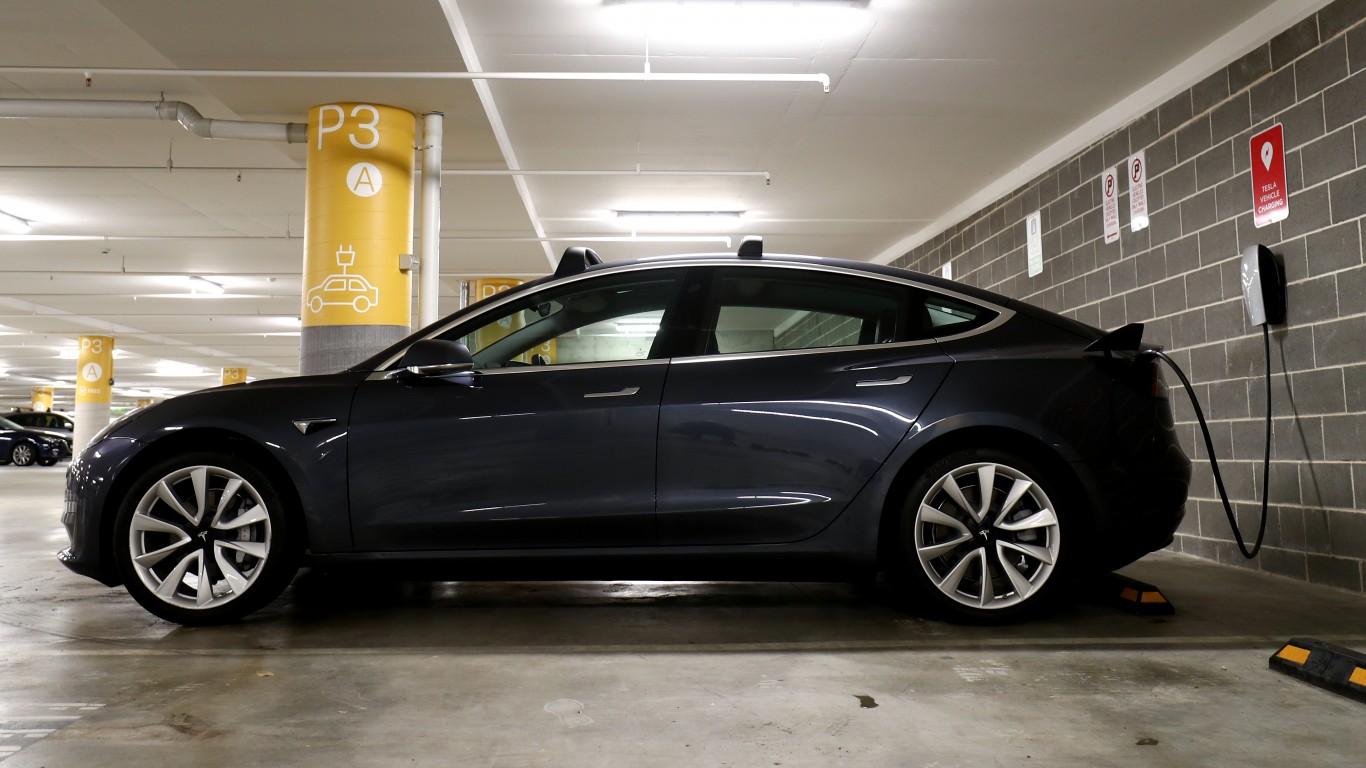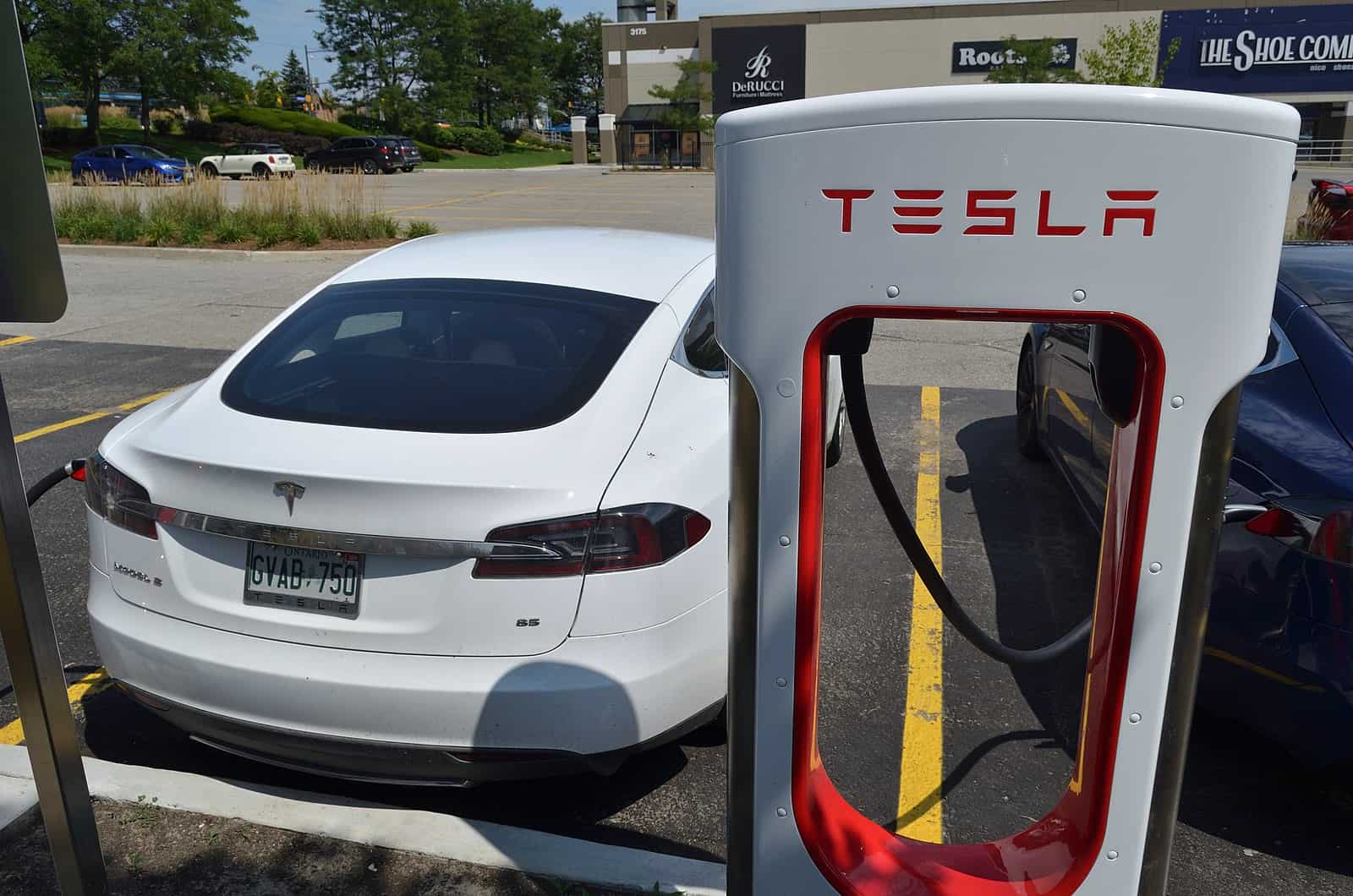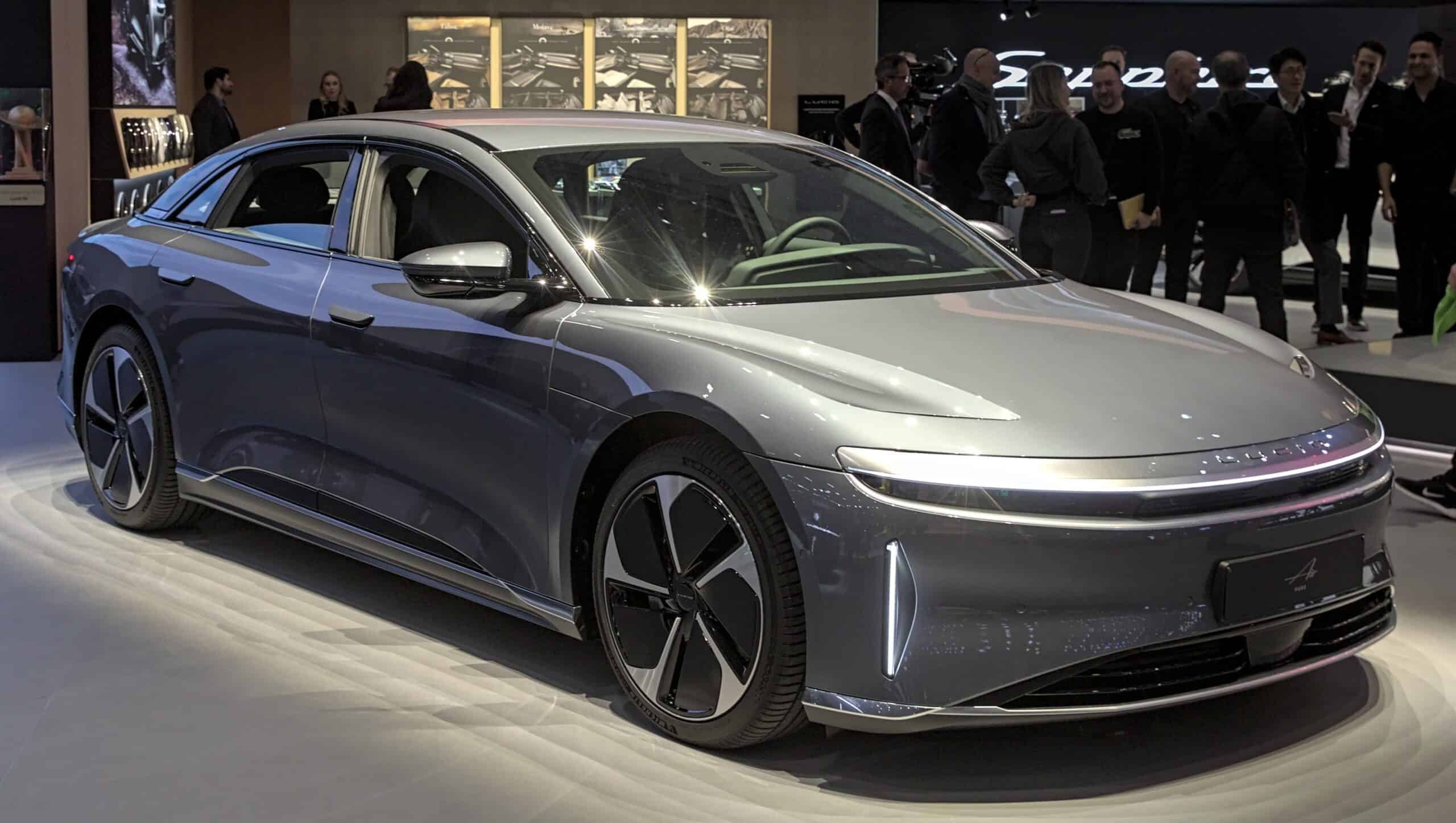
Since late last year, electric vehicle (EV) companies have been struggling to find their footing. Many of these EV makers are facing major challenges in meeting demand (which is declining) and generating profitability, considering the current price wars we’re seeing in this space.
While price cuts are great for consumers, and may certainly stoke demand in the near-term, higher interest rates have been a burden for many car buyers. Electric vehicles are generally more expensive than their internal combustion engine (ICE) counterparts, and with inflationary concerns eating away at consumers’ budgets, this is a sector that has certainly felt the pinch, perhaps more than others.
Accordingly, many investors may rightly be concerned with the expected growth rates of certain players in this sector right now. In my view, such investors are onto something.
For those looking to lighten up on EV exposure, here are three top EV stocks I think are sells right now.
Key Points About This Article:
- A number of key headwinds have continued to plague EV stocks in recent months, with high interest rates (and auto loan rates), price wars, and weak consumer demand key factors driving lower valuations in the sector.
- For those concerned that these headwinds may persist longer than the market is pricing in, here are three EV stocks to be wary of right now.
- If you’re looking for some stocks with huge potential, make sure to grab a free copy of our brand-new “The Next NVIDIA” report. It features a software stock we’re confident has 10X potential.
Telsa (TSLA)

The EV leader and who made electric vehicles possible to begin with, Tesla (NASDAQ:TSLA) is starting to look like a growth stock without the growth. The company has been among the hardest-hit by slowing consumer demand for EVs, with its leading market share in the U.S. diminishing as increased competition and price cuts from global players eat away at its gross margins. Additionally, a shift toward hybrid vehicles has many car buyers looking at brands that aren’t Tesla. And CEO Elon Musk’s hot political takes aren’t doing much for a brand which relied heavily on the eco-friendly left-leaning demographic for its initial early adoption in the market.
Now that Tesla’s financials are deteriorating, the company is looking at ways to gain more revenue. There’s talk of robotaxis, a major investment in xAI (Elon Musk’s other venture), and other gimmicky non-EV business lines. But the reality is that even when factoring in potential future catalysts like the robotaxi and Tesla Bot may offer some hope, analysts project only 6% upside for TSLA stock. That factor alone suggests now may be the time for investors to consider taking profits.
Moreover, Tesla halted orders for the $61,000 Cybertruck, focusing on the $100,000 version for immediate delivery. Despite Elon Musk being optimistic that Tesla can still produce 200,000 units every year, the demand for the pricier model is lower than expected. Some costumers prefer cheaper yet more efficient options in this space. And in July, Tesla only sold 4,800 models, and suggested that sustaining sales levels has been difficult.
Overall, Tesla is among the top EV stocks I’m most bearish on, for these reasons and others. Long-term growth investors may want to look elsewhere for breakneck growth moving forward.
Lucid Motors (LCID)

Facing a mixed bag of sentiment from market analysts, Lucid Group (NASDAQ:LCID) is another EV maker I think deserves a spot on this list. The company has been struggling to maintain its financial outlook amid production troubles. And while CEO Peter Rawlinson remains optimistic the company is on track to see continued sales and profitability growth as cost-saving efforts take hold, it’s generally true that cost-cutting initiatives aren’t well-aligned with growth. One of the reasons investors can argue Tesla is so far ahead from other car makers is the company had the advantage of the zero-rate environment post-pandemic to ramp the business.
Now, Lucid is seeing some interest ahead of the company’s upcoming Gravity SUV launch. CFO Gagan Dhingra credited the company’s Q2 success to increased Lucid Air sales and cost reductions, noting that the $1.5 billion PIF commitment ensures liquidity through Q4 2025. It’s not all bad news for this EV maker.
When Lucid entered the market in 2021, the company had high ambitions. The company positioned itself as “post-luxury” and claims superior battery efficiency compared to Tesla. Lucid anticipated to deliver 90,000 units in 2024, and higher numbers in the coming years. However, it was only able to deliver 2,394 units in Q2 2024, which is far below its target.
The gap between the estimates and real data has certainly been concerning to Lucid investors. And like other early-stage EV companies, Lucid is going to need more capital to reach its production targets. In this environment, that’s going to be tough, and it’s why I think LCID stock is too risky here.
QuantumScape (QS)

After reporting its Q2 2024 earnings report, solid-state battery company QuantumScape (NYSE:QS) shares declined post-trading hours. The company had no revenue to report, but did note that the company’s net loss ballooned to $122.95. This net loss was also higher than those seen in recent years, with the entirety of last year’s net loss coming in at “only” $116.50 million. The company’s GAAP EPS loss came in at -$0.25, driven by overspending on research and development.
Once a SPAC (special purpose acquisition company) stock, QuantumScape now faces hurdles in its commercial production timelines. The company’s solid-state batteries have seen some scientific support in laboratory environments. But making these batteries at scale is problematic. And despite a recent partnership with Volkswagen’ subsidiary PowrerCo for mass production, many believe that time (or more accurately, money) may run out before QuantumScape can truly hit escape velocity.
I think QuantumScape’s core battery innovation is interesting, and I want to see it succeed. The thing is, there are other options in this space, and QuantumScape is simply bleeding too much cash right now to appear like a viable option for investors.
Thank you for reading! Have some feedback for us?
Contact the 24/7 Wall St. editorial team.



